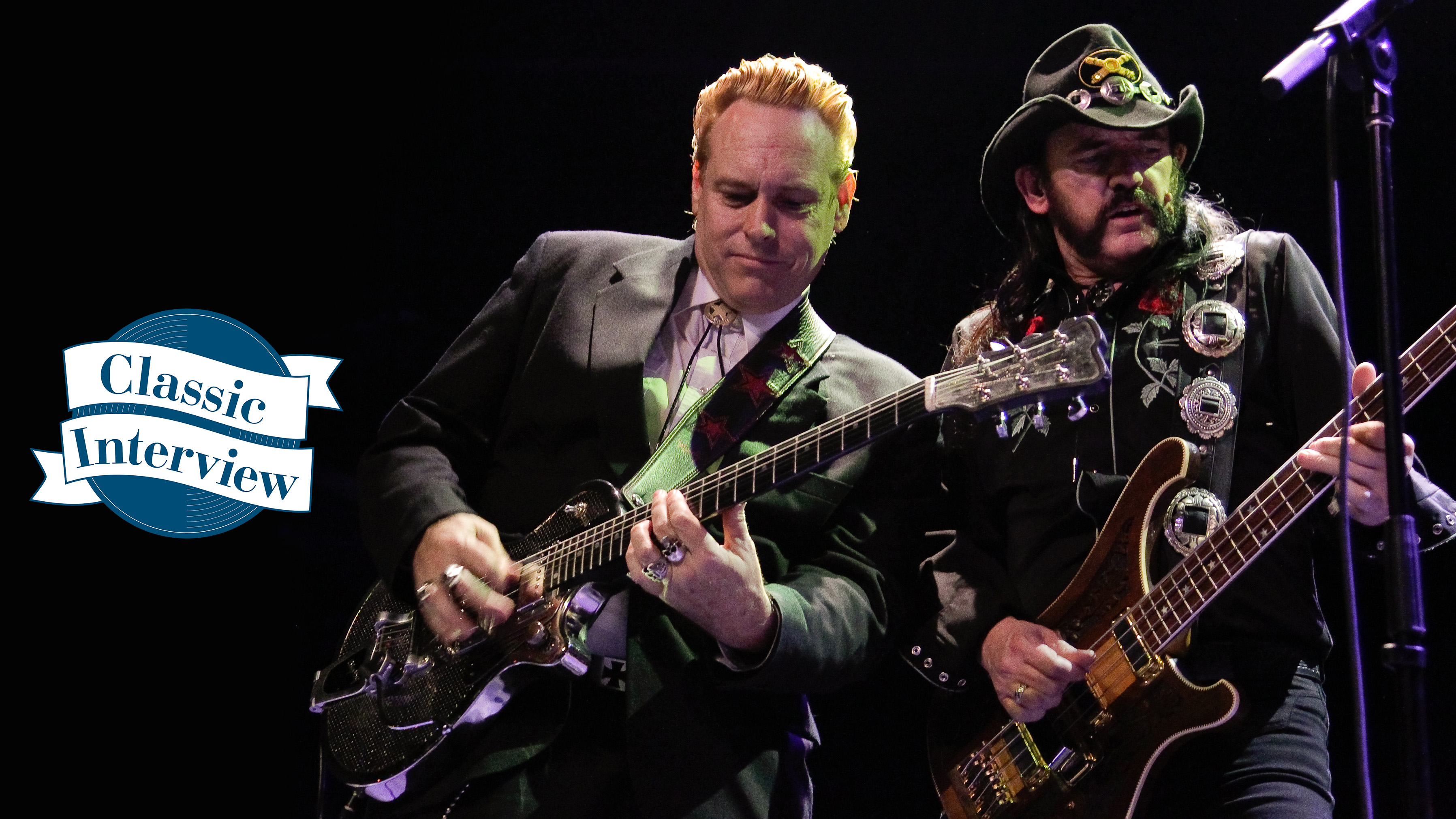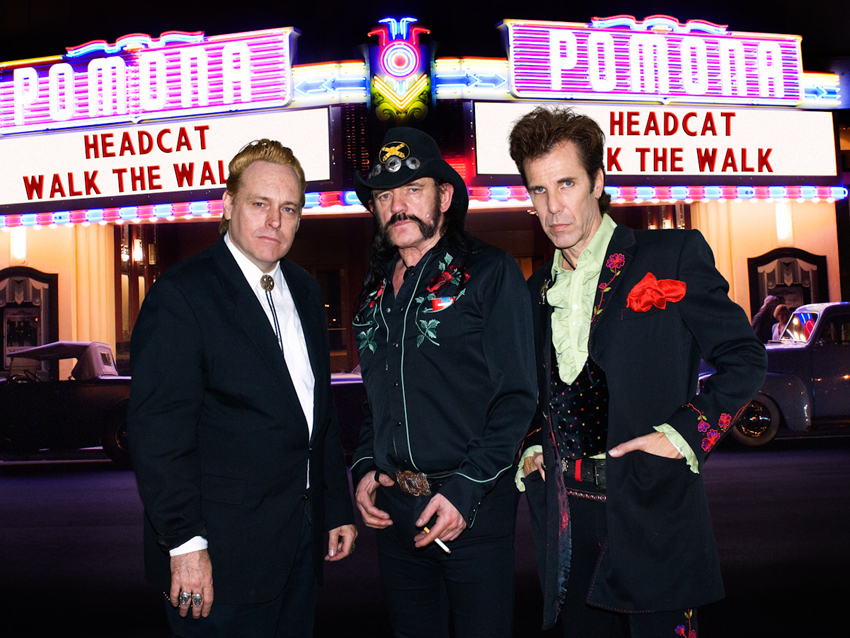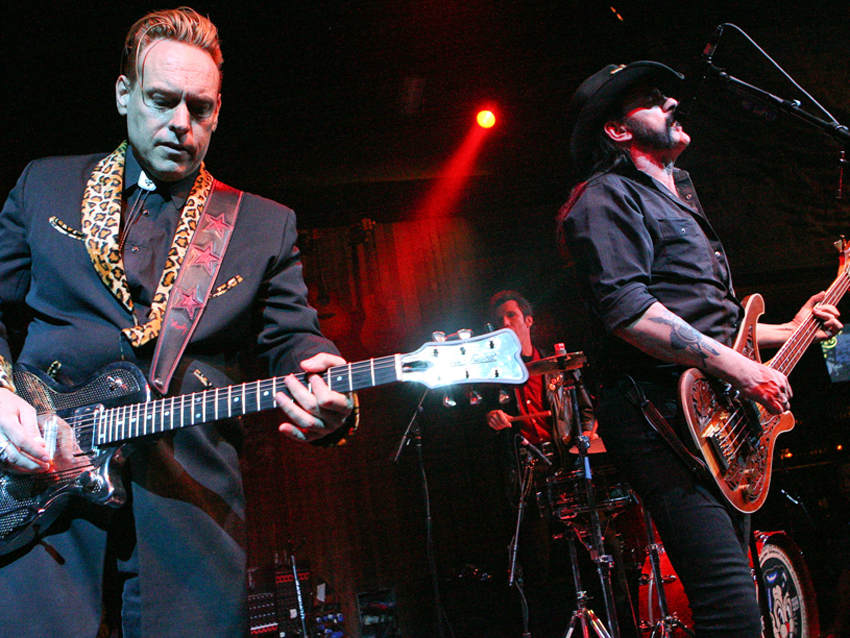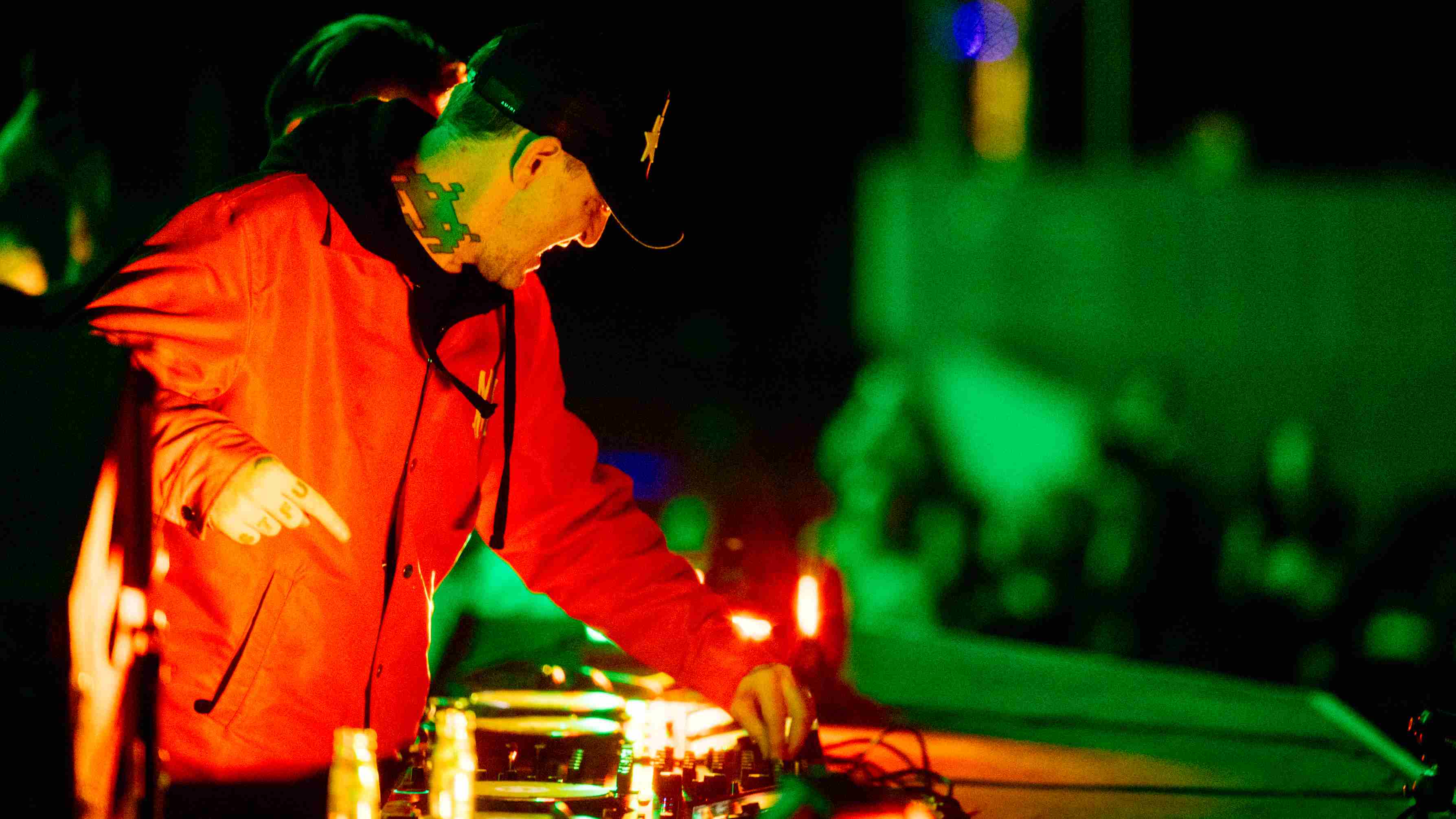
This interview was first published by MusicRadar in March 2012
"This is the first music that meant something to me," says Motorhead singer/bassist Lemmy Kilminster on the subject of rockabilly. "I never liked jazz or anything else. Early rock 'n' roll - that was music to me. Everything else was boring."
Fuelled by his love of rockabilly, Lemmy took a left turn from Motorhead's high-intensity, extreme-decibel approach and formed the side band The Head Cat with Stray Cats drummer Slim Jim Phantom and guitarist Danny B Harvey in 2000. The group has released two exuberant, covers-heavy albums, 2006's Fool's Paradise (a re-release of an earlier disc) and last year's Walk The Walk... Talk The Talk, and this past weekend they played a rare show at the Roxy in Los Angeles.
While prepping for the gig, Lemmy sat down with MusicRadar to discuss how playing rockabilly gems compares to storming stages with Motorhead, the important lesson he learned from his first rock 'n' roll show and what early records make his personal Top 10 list.

The Head Cat formed when the three of you were working on an Elvis tribute, is that right?
"Yeah. We were doing a track for this album [Swing Cats: A Special Tribute To Elvis], and when we were done, we started fooling around with guitars. Before you knew it, we were playing a bunch of songs. It came easy - and that's the best way, isn't it? That's how you know you've got something worth doing.
"I wasn't looking to start another group, so it's probably a big mistake that I went ahead with this. [laughs] But you know, when you've got some chemistry, and everybody knows the same songs, and they're good at what they're doing, why waste the opportunity?"
Get the MusicRadar Newsletter
Want all the hottest music and gear news, reviews, deals, features and more, direct to your inbox? Sign up here.
Was Slim Jim surprised at your authentic rock 'n' roll roots? A lot of people just know you from Motorhead.
"No, he knew where I was and what I liked. We first hooked up years ago, in 1977. The Stray Cats came over to London, so that's where we met up. They happened in England before the States. As for what other people think of me, I don't care. I don't care and never have. [laughs] They've got things to come to terms with."
You've only done two albums since forming. Is it hard to get everybody together?
"Sure. Touring with Motorhead is so time-consuming. It's all I can do to find the time to do anything else. I don't know when Head Cat is going to go into the studio again – there's no plans – but if we get two days off, we could make another record. Walk The Walk… just came out on vinyl, so that might get a bit of sales going."
For the two Head Cat records, how did you decide which songs to cover?
"We just get together and play, that's all. We can play just about anything, you know. Name a song, play it, see if the other guys know it – that's what we do in the studio. If you can't remember something, then pick another song. It's pretty easy."
Who was the first rockabilly artist to make an impression on you?
"Elvis was the first one I really liked, then there was Billy Haley - the real one. See, when I was growing up, we got the English versions of all the American songs. So we had Tommy Steele doing Singing The Blues instead of Guy Mitchell, and we got the English version of Bill Haley and people like that.
"Sure, we got the real Elvis, so that was all right. Dion And The Belmonts, we heard them. There was an English artist, Marty Wilde, he covered all their stuff. I liked a lot of them: Buddy Holly, Jerry Lee, Eddie – I went out and bought their 45s."
Do you remember your first rock 'n' roll show?
"Billy Fury. When I saw him, I realised that you could get any girl to take her clothes off if you were a rock 'n' roll singer – that was good enough for me. [laughs] He had a group called The Tornados backing him. They were session players. I thought they were pretty run of the mill, actually.
"Billy had the whole star thing down, had a silver suit and the whole bit. He was from Liverpool, same as The Beatles. Ballads were his main thing, but he did rock 'n' roll on his B-sides - that's what I liked, the rock stuff.
"After that, I saw a few others. Gene Vincent was a good one. I liked him more than Billy Fury, and I got to meet him, too, so that was good."

Back then, if you could string a solo together for 20 seconds, you had the advantage over everybody else
In your opinion, who was the best rockabilly instrumentalist back in the day?
"Eddie Cochran. I never got to see him live, but he could play. Him and Buddy Holly, they were the best guitarists. They could get a good raunchy beat going. Back then, if you could string a solo together for 20 seconds, you had the advantage over everybody else. Link Wray, he was good, too."
For this gig, I started out playing guitar live, but I'm better at playing bass when I sing, so I went back to that
What did you think when rock 'n' roll started getting watered down and went more 'pop' in the early '60s?
"I didn't care, really – still don't. Just as long as it's a good song, that's all I ever cared about. The word 'pop' is just shorter for saying 'popular.' Just 'cause something's popular, it can still be good. In fact, if more people are buying it, then you must be doing something right. People look down on stuff that sells. What do you call that? Downward snobbery, I guess."
As a musician, how different is performing with The Heat Cat from Motörhead?
"It's a lot easier, I'll tell you that! [laughs] It's less intense. We play covers, so that's easier than writing your own songs and learning them and taking them on stage. These songs have been on stage before.
"For this gig, I started out playing guitar live, but I'm better at playing bass when I sing, so I went back to that. I play mostly chords on the bass anyway. It's just the three of us on stage now. We used to have a bigger lineup for gigs, but we brought it back to the three - it's tight."
You've always had a rather unique vocal style. What do you think Carl Perkins or Buddy Holly would have made of your singing?
"I couldn't tell you. They did it their way, I do it mine. I can only do it my way, you know - I wasn't born in Oklahoma!" [laughs]
Lemmy's Top 10 rockabilly records
1. Carl Perkins - Right String Baby But The Wrong Yo-Yo (1957)
2. Carl Perkins - Movie Magg (1961)
3. Elvis Presley - I'm Left, You're Right, She's Gone (1955)
4. Elvis Presley - I Forgot To Remember To Forget (1955)
5. Buddy Holly - That'll Be The Day (1957)
6. Gene Vincent - Race With The Devil (1956)
7. Eddie Cochran - Summertime Blues (1958)
8. Jerry Lee Lewis - Crazy Arms (1956)
9. Johnny Cash - Big River (1958)
10. Johnny Burnette And The Rock And Roll Trio - Train Kept A-Rollin' (1956)
Joe is a freelance journalist who has, over the past few decades, interviewed hundreds of guitarists for Guitar World, Guitar Player, MusicRadar and Classic Rock. He is also a former editor of Guitar World, contributing writer for Guitar Aficionado and VP of A&R for Island Records. He’s an enthusiastic guitarist, but he’s nowhere near the likes of the people he interviews. Surprisingly, his skills are more suited to the drums. If you need a drummer for your Beatles tribute band, look him up.
“It is ingrained with my artwork, an art piece that I had done years ago called Sunburst”: Serj Tankian and the Gibson Custom Shop team up for limited edition signature Foundations Les Paul Modern
“The last thing Billy and I wanted to do was retread and say, ‘Hey, let’s do another Rebel Yell.’ We’ve already done that”: Guitar hero Steve Stevens lifts the lid on the new Billy Idol album










